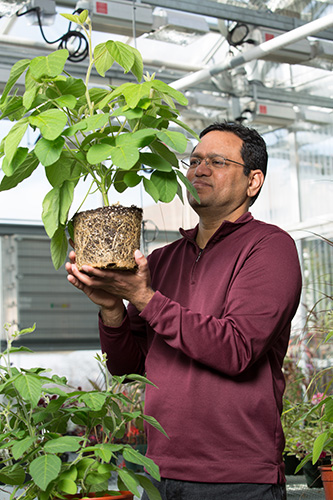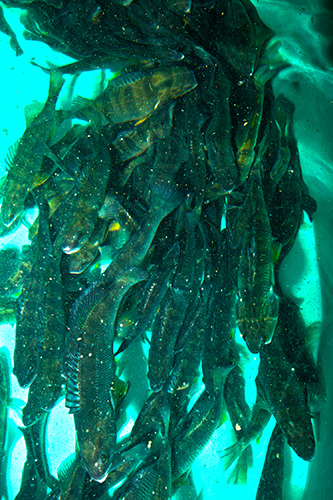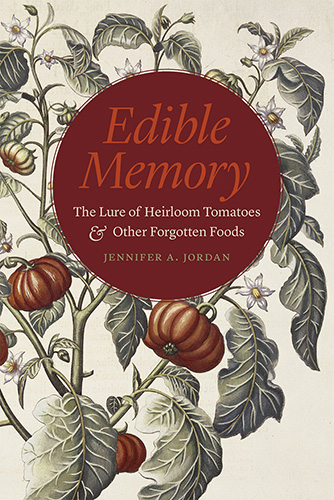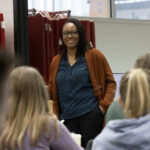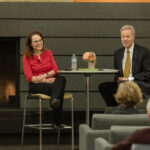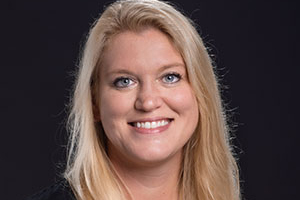Worried about where your food comes from? Interested in our relationships with food? In an age where processed foods dominate our diets, UWM researchers are working to give us a fuller picture of why we consume certain foods – and how we can eat healthier.
Fewer chemicals, bigger yields
If you want to avoid commercial fertilizers in your garden, you can benefit from the work of UWM biologist Gyaneshwar Prasad, who studies the unique relationship between legumes and certain bacteria that enhance growth naturally.
Most plants take growth-boosting nitrogen from the soil, but that is depleted over time. But legumes, like soybeans, produce their own nitrogen with the help of bacteria in the soil that get into the plant’s roots.
How these bacteria interact with non-legumes is the subject of Prasad’s research. It’s a puzzle, he says, because the genetic machinery that enables nitrogen production exists in other crops that do not “fix” nitrogen.
Discovering why could lead to applying this bacteria-fueled process to non-legumes, increasing yields in global staple crops like rice and corn without the cost and environmental harm of fertilizers.
The love-sugar connection

Does being in love help you curb your indulgence in sweets? Could be, according to a study by Xiaojing Yang in the Lubar School of Business.
The relationship status of study participants had an impact on whether they opted for sweet foods after exposure to a romantic stimulus, such watching a “chick flick.” Those who were romantically involved resisted the sweets more often than singles exposed to the same stimulus.
While more research is necessary to identify the reasons behind the correlation, Yang says one possibility is that single people use sugary food in some circumstances to satisfy a craving for l’amour. It’s one example of a phenomenon called conceptual metaphors – physical manifestations of feelings.
That’s something that intrigues Yang on a personal level, after his own significant weight loss. He wondered how conceptual metaphors might affect sugar cravings.
How fish can create jobs
High-demand fish, such as yellow perch, are dwindling in Lake Michigan but sell for around $17 a pound.
In the land of the Friday-night fish fry, UWM senior scientist Fred Binkowski believes aquaculture (fish farming) could be a viable urban business if people had the right technical advice and a reliable scientific model. The School of Freshwater Sciences is ground zero for that expertise.
Binkowski’s laboratory was the first in the world to find an all-natural method of getting yellow perch to spawn year round, meeting the demand throughout the year.
With celebrated urban farmer Will Allen, Binkowski is testing different environments for raising produce and yellow perch in a single system, called aquaponics.
Where there’s a market, there will be jobs. So, UWM is also offering students training in the science of aquaculture through a new certificate program.
Antiques of the food world
Sociologist Jennifer Jordan examines the stories we tell ourselves about food – the stories of “us” in what we eat. Her new book, “Edible Memory,” reveals the critical role that home gardeners have played in preserving “the taste of childhood” by growing their grandmother’s tomato or an old apple variety.
“You end up with a lot of biodiversity held in gardens” because of taste-related memories, Jordan says. The seeds kept by those gardeners have fueled the local food movement of the past two decades as people crave a greater connection with their food. In some communities, food and stories about it help preserve identity too.
“The concept of heirloom food really runs the spectrum from being a superficial line on a menu at an expensive restaurant to being a deep part of how many of us understand our place in the world,” says Jordan.
From field to fork
The “slow food” movement in Milwaukee is picking up speed thanks to the new multi-member Institute for Urban Agriculture and Nutrition, incubating in the School of Social Welfare.
The institute launched foodlinkmilwaukee.org, an online directory of people interested in sustainable food systems – from community practitioners and academic scholars to government officials and those in the profit sector.
Among the projects institute members are cultivating is a school-based nutrition initiative funded by the Healthier Wisconsin Partnership Program. It exposes children and their parents to different aspects of fresh food.
At Alba School on Milwaukee’s South Side parents meet weekly to learn how to make menus healthier, while their children get training in how to grow vegetables. “Studies indicate that once kids see where the food comes from, they are more likely to eat it,” says Bonnie Halvorsen, outreach director for the institute.
